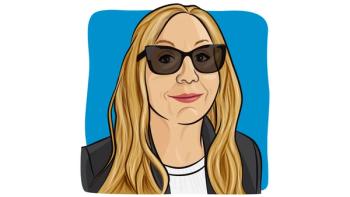
Close to Her Heart
This essay nominating Wilafe Tolentino, B.S.N., RN, OCN for CURE®'s Extraordinary Healer® Award was written by Dr. Fred Hardwicke, M.D., of the University Medical Center Southwest Cancer Center, Lubbock, Texas.
There are some events that you never forget. Very early in my career, a young man with acute lymphocytic leukemia was scheduled to receive diphenhydramine as a premedication for a platelet transfusion. This time, however, the patient erupted with a dreadful reaction. His heart was racing, his blood pressure skyrocketed, and his face held the look of terror.
I don’t think that we were a calming influence, but as we struggled with what to do, his symptoms started to dwindle away. A few minutes later, we discovered that epinephrine had been given, not diphenhydramine, and the mystery was solved.
Fast-f orward a few decades and imagine me called in by a helper to deal with a possible infusion reaction. I found a room with almost a dozen people in it, including my head infusion nurse, WilaFe “Wila” Tolentino, B.S.N., RN, OCN, and a handful of other nurses, some family members and, of course, the patient on a bed in the middle of it all. I started throwing around some of the usual questions, and then I asked if perhaps a wrong medicine was given. That did not seem to be the case, and fortunately, the patient’s situation improved over time.
From left: Fred Hardwicke, M.D., and WilaFe Tolentino, B.S.N., RN, OCN. Photos by Lauren Clark.
I didn’t think much more about the episode until the following morning, when Wila pulled me aside to have a talk: “Dr. Hardwicke, it is our job to establish trust with these patients, and when you have a patient and family around, you need to watch what you say.” I still didn’t quite connect the dots. “Dr. Hardwicke, we are professionals; we don’t give the wrong medicine!”
That was a conversation that I will never forget, and rather than tearing us apart, it helped solidify our friendship as professionals — a friendship rooted in respect for our different positions and admiration for our individual dedication and talents. Nurses and doctors have different roles, but both are professionals, living out their training with a solid ethic and with competence and compassion.
Like me, Wila was born on an island, but hers was in the Philippines, and she had a full life before she came to Texas. In Manila, she was the oldest of six children, so perhaps the leadership role came naturally to her. Getting a full education was something her parents promoted, and all of Wila’s siblings went into math or engineering. Although nursing was a popular profession, Wila didn’t see that in her future and considered being a teacher. Her mother pushed her into nursing anyway, insisting that her daughter had a “big heart” and could be a great nurse.
Initially, Wila’s experiences were all over the field, with some work in the emergency room, as well as medical and surgical intensive care units and floors. She thought of staying in the Philippines forever but felt strangely drawn by an opportunity that opened up in Saudi Arabia. What might have been a rather short diversion instead became a decade of nursing experience. Wila found a home in oncology because of the connections that develop with the patient throughout treatment. According to Wila, “It doesn’t feel like I am doing a job, but a service that is close to my heart. It feels right to stay in oncology.”
My theory is that Saudi Arabia helped train Wila for the climate of West Texas. Wila went back to the Philippines as a housewife but really missed nursing, and she took a long trip in 1995 to her next assignment — Lubbock, Texas. This was not exactly the big-city style that she expected, but she has grown to love it. She started doing a few on-call infusion nurse assignments at University Medical Center (UMC) in 2004 and became the head of the chemotherapy infusion nursing staff shortly after becoming a full‐time employee of UMC’s Southwest Cancer Center (SWCC) in 2006.
Wila says, “I really don’t need any awards or recognition to know that I am in the right place at the right time.” It is worth noting, though, that she has been a UMC All Star and has been the SWCC nurse of the unit three times. Frequently, she is the first nurse present, and she rarely leaves early. Having a family history of significant illnesses, she takes charge of her own health through exercise and diet. She is the nurse in charge of the outpatient bone marrow biopsy patients and is a go‐to person for tough IVs. She is the leader of the pack, and she leads well because she is not afraid to express her opinion and because she is respected by all the other infusion nurses. She also has managed to find a way to ensure that some of my last-minute patients can get in and receive the treatments that they need.
Wila became an American citizen a number of years ago. She has a grown daughter and son. From time to time, she will take long trips to visit siblings, and we eagerly await her return, because things aren’t quite the same when she is gone. I nominate her for the 2019 Extraordinary Healer® Award and will add, looking back over my dozen‐plus years of working with her, that her mother was right on the mark: She has a big heart, and she has become a great nurse.




